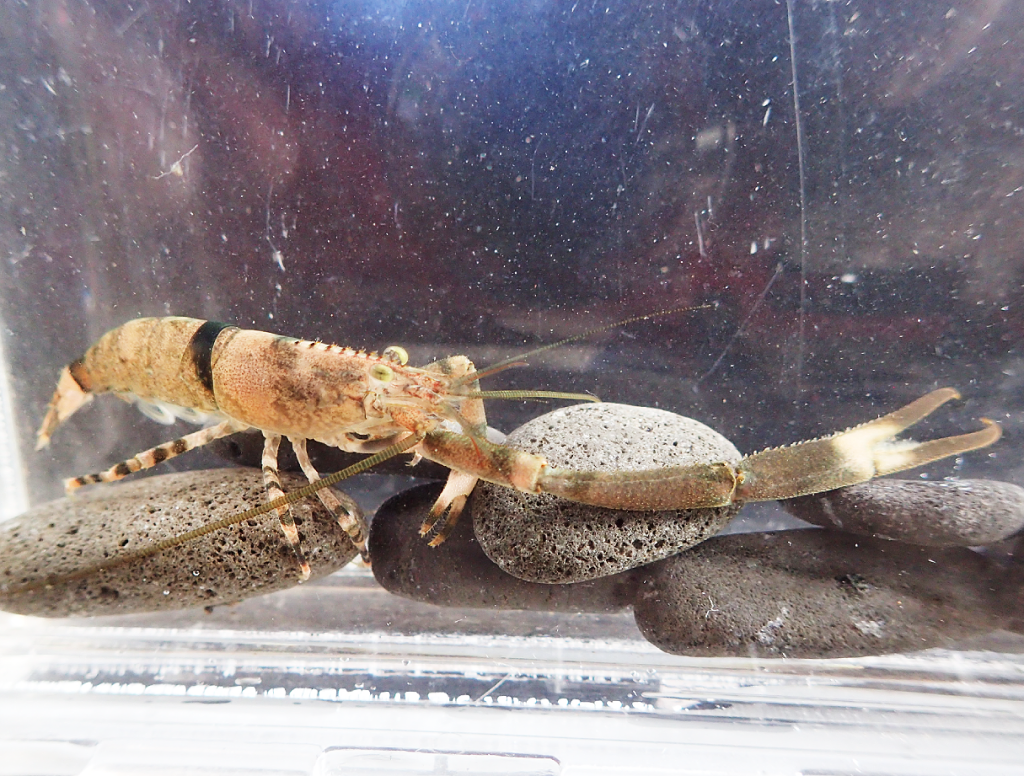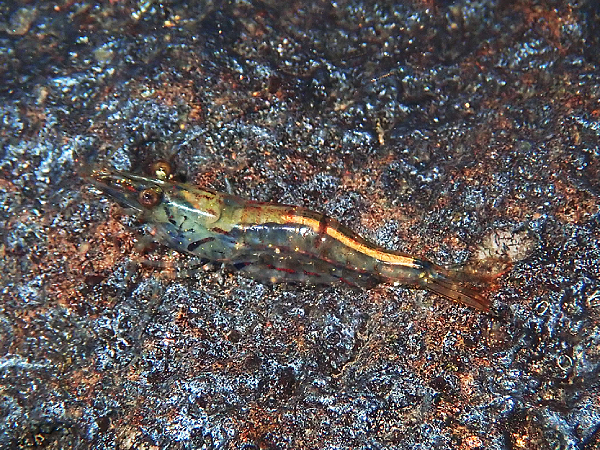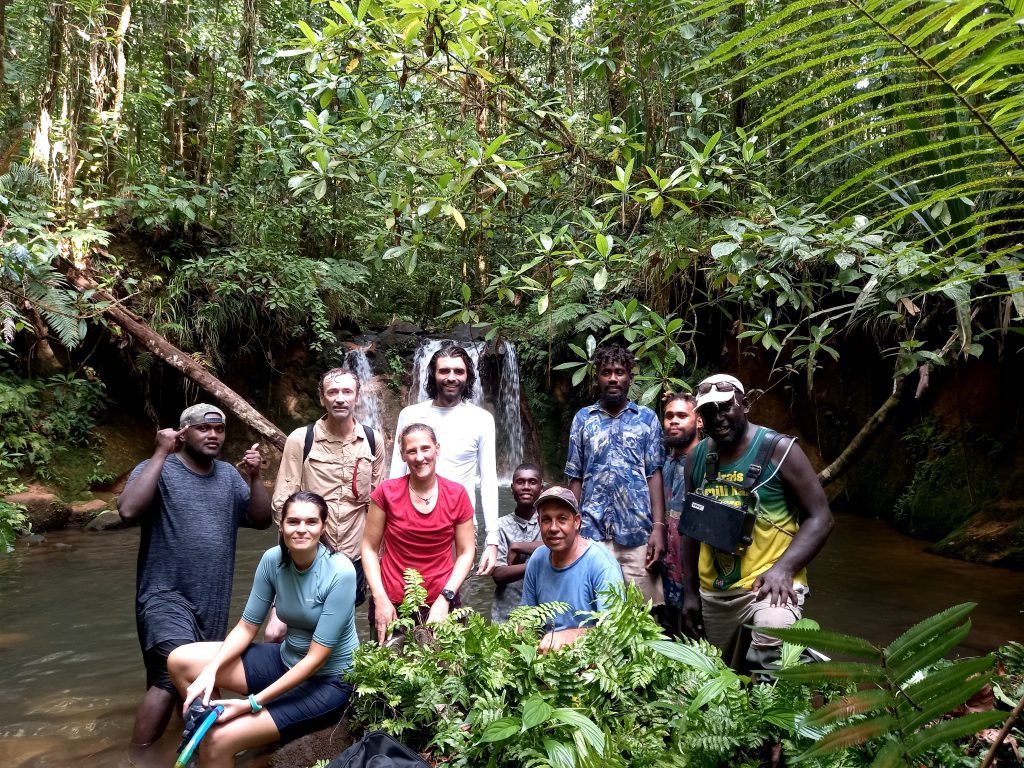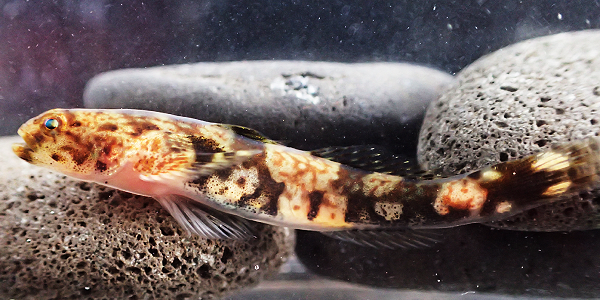New freshwater fish and prawns discovered in Western Province
A total of four (4) new fish records and two (2) potential new fish species as well as eight (8) new records and two (2) potential new prawn species were discovered in several islands in Western Province last month.
A statement issued early this month (Nov) by Ecological Solutions, Solomon Islands (ESSI) based in Gizo, Western Province confirmed this.
“The discovery were made in a recent expedition by the French Ichthyological Society (SFI), based at the Muséum National d’Histoire Naturelle (MNHN), Paris, France, and Ecological Solutions, Solomon Islands (ESSI).
“A total of 52 fish species, 22 prawn species and 6 crab species were documented at the end of the expedition on Monday this week,” the statement said.
As part of the expedition the team spent a total of 9 days in the field surveying freshwater fish, prawns and crabs in rivers on Rendova Island, Tetepare Island and South New Georgia Island in the Western Province.

Reports said the expedition was conducted from October 23rd to October 31st at the rivers on Rendova Island, Tetepare Island and South New Georgia Island in the Western Province.
The team comprised of four scientists from the Muséum National d’Histoire Naturelle and two local biologists from Ecological Solutions and their boat crew.
The team departed from Munda for Ughele Village where they spent 2 days of freshwater survey and then travelled by boat to Lokuru Village for another two days of freshwater survey on Rendova Island.
Then the team went across to Tetepare Island and camped out near the Hokata River for three nights and four days of freshwater survey.
While on Tetepare, the team hoped to come across the famous “noodle fish” found in 2006 on the Hokata River.
The team then ended their freshwater survey at Herenge River near Ha’apai Village on South New Georgia Island.
The team was fully satisfied by the discovery made during the expedition, even though, we were unable to collect the “noodle fish”, said Dr. Clara Lord of the French Ichthyological Society.
The trip was made possible through the funding support from the “National Geography Society” and the French Ichthyological Society to Dr. Marion Mennesson and Dr. Clara Lord of the French Ichthyological Society.

It was also made possible thanks to the partnership between the custodians of the rivers that the team surveyed, the leaders of the provincial government on Western Province and the national government through the Ministry of Environment, Climate Change, Disaster Management and Meteorology.
This partnership forms the basis of the successful expedition. The team would also like to acknowledge all the chiefs and their communities for accepting them into their villages.
The friendship shared with the different villages over the past nine days was overwhelming.
“We need researchers like you to come and conduct research on our islands to discover and document freshwater fauna in our rivers echoed,” said Mr. Jack Daniel, Chairman of Tetepare Descendent Association.
The discovery will add to the list of discoveries that the team has made in 2014, 2016, 2017 and 2019 on Choiseul, Kolobangara, Ranongga, Vella La Vella, Guadalcanal, Malaita and Isabel Provinces.
The team has discovered a total of 80 fish species and 40 crustacean species, of which 22 species are new to science. The recent studies will add to the list above.
These latest results will be compiled into a freshwater fauna report for Solomon Islands.
The recent findings will help improve the Freshwater fish book that the team already published in 2021.
The book was written in English and Pidgin explained Mr. David Boseto of ESSI.
The books were given to schools at Buruku Community School, Lokuru Primary and Community Schools and Ha’apai primary school to put them in their school library.
The book will raise awareness regarding the rich freshwater fish biodiversity and the role of pristine forest on habitats and freshwater quality.
It will also provide important information concerning conservation and management actions where needed given the knowledge about species and for management actions that could readily be implemented by local communities and resource managers.
The information from the book will be useful to other stakeholders, especially those involved in teaching at secondary and tertiary schools and for public awareness programs, commented Professor Philippe Keith of the MNHN.

In addition to giving books to schools, research presentations were given at each village to communities and schools to explain the work of the team and its findings at each site.
The presentations aimed at raising awareness on the importance of freshwater fauna and the importance of pristine forest to maintain a healthy freshwater system for present and future generations.
A final presentations will be given at Solomon Islands National University on November 3rd from 2pm to 4pm; the main speaker will be Vincent Haÿ of the MNHN, Phd student working on tropical island freshwater fish.
The France team is expected to leave the country on Friday.
By MOFFAT MAMU









